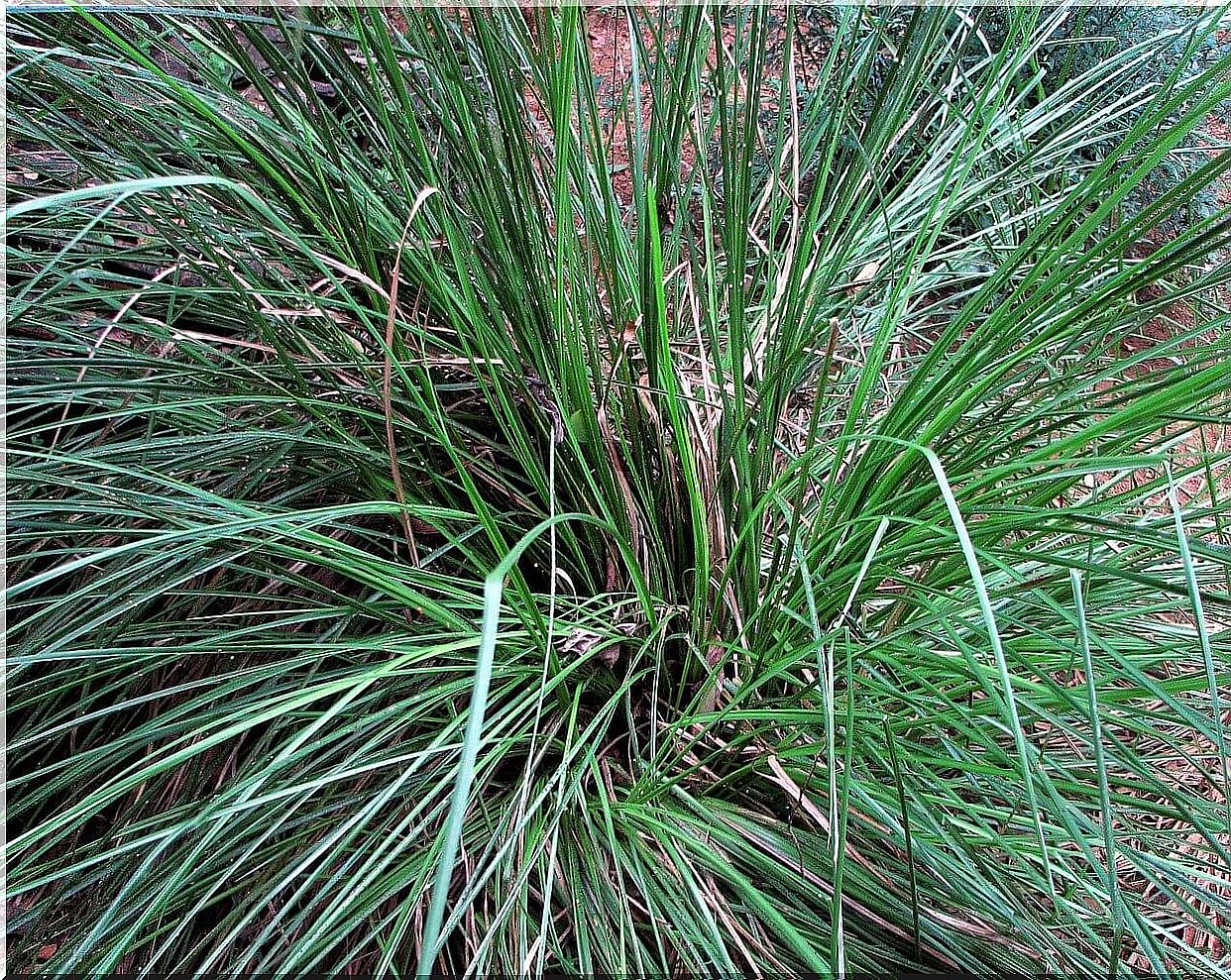Vetiver Essential Oil: Properties, Uses And Benefits
Vetiver essential oil is very popular in aromatherapy due to its properties. In particular, it is used to relieve stress, repel insects and soothe minor skin lesions. You want to know more?

Vetiver essential oil is obtained from a clumpy green herb whose scientific name is Chrysopogon zizanioides. It belongs to the grass family, of which lemongrass and citronella are also part. It is often used in aromatherapy for therapeutic purposes.
According to an article published in the magazine Molecules , the chemical composition of this oil gives it antimicrobial and antioxidant qualities. In addition to this, it is calming and acts as an anti-inflammatory. To know more about its properties and benefits, we invite you to continue reading.
Vetiver oil properties
Vetiver oil is obtained from the roots of the vetiver plant. It has a rather peculiar, earthy aroma, often known in male colognes. According to information compiled in the Journal of Agricultural and Food Chemistry , this product concentrates substances with antioxidant capacity. In turn, the following properties are attributed to it:
- Anti-inflammatory.
- Antiseptic.
- Pain relieving.
- Relaxing.
- Aphrodisiac.
Main benefits of vetiver oil
Due to its interesting composition, vetiver oil has been used in aromatherapy with the aim of promoting well-being. In fact, there is some research to support its effects. We will detail it below.
Helps reduce mental fatigue
In times of fatigue, vetiver essential oil can serve as an adjunct to reduce mental fatigue. Due to its relaxing effect, it reduces stress and improves alertness.
In this regard, a study done on animals and published in the Journal of Intercultural Ethnopharmacology determined that the refreshing properties of this oil stimulate brain electrical activity and help improve mental performance.

Promotes snoring control
Although more evidence is lacking, recent studies have shown that vetiver essential oil may be beneficial for people who snore a lot. In particular, research reported in Chemical Senses found that inhaling it can improve the quality of exhalation during sleep.
Helps calm stress and anxiety
The anxiolytic effects of this essential oil are well known in traditional medicine. Even since ancient times they have been used in rituals and therapies with the aim of improving mental health in the face of stress and anxiety.
On this, an animal study published in Natural Product Research observed that rats exposed to the aroma of vetiver oil appeared to be more relaxed after inhalation. Still, human trials are required to verify this effect.
In any case, both this and other oils are common in aromatherapy when it comes to combating stress symptoms. They are even combined with carrier oils (such as olive or coconut) for relaxing massages.
It is an adjunct to ADHD
Treatment for attention deficit hyperactivity disorder (ADHD) requires a multidisciplinary team. Therefore, it should be clarified that vetiver oil is not a first-choice option to address this condition. Still, it can be considered an adjunct.
The reason? Its ability to improve alertness and reduce mental fatigue. This effect can help people with ADHD have better concentration. In addition, the relaxing action of aromatherapy is also favorable, as shown by research published in Translational Pediatrics .
Helps fight free radicals
Due to its content of antioxidant compounds, this essential oil is a good option to mitigate the negative effects of free radicals. The latter are associated with an increased risk of chronic diseases and premature aging.
Today, some cosmetic products contain vetiver oil and are therefore recommended for skin care. Its use appears to help prevent wrinkles and other signs of aging.
Protects against ticks
Vetiver essential oil is one of the most popular natural repellants. Due to its composition it has a high toxicity for species such as ticks. In fact, a publication in Veterinary Parasitology determined that, when diluted in a carrier oil, it can be even more efficient than certain commercial repellants at protecting against ticks.

How to use vetiver essential oil?
Vetiver essential oil is generally used in aromatherapy. That is, it is incorporated into a diffuser to inhale the aroma and obtain its benefits. Likewise, it can be added to boiling water to generate steam with its smell.
It can also be applied topically, as long as it is previously diluted in a carrier oil, such as coconut, jojoba or olive. In this case, 2 or 3 drops of vetiver oil should be mixed for every 10 drops of carrier oil. The final mixture is applied by massage.
Vetiver oil precautions and contraindications
In most cases, using vetiver essential oil is safe. As long as it is used in moderation, there is no risk of side effects. Anyway, in case of pregnancy, lactation or some chronic disease it is best to consult a doctor before using this product.
What is there to remember about vetiver essential oil?
Vetiver essential oil has potential as an adjunct against some health problems, such as stress, poor concentration, and snoring. However, due to a lack of research, there is still no precise data on its safety and efficacy in humans. That is why it should not be a first-line treatment.